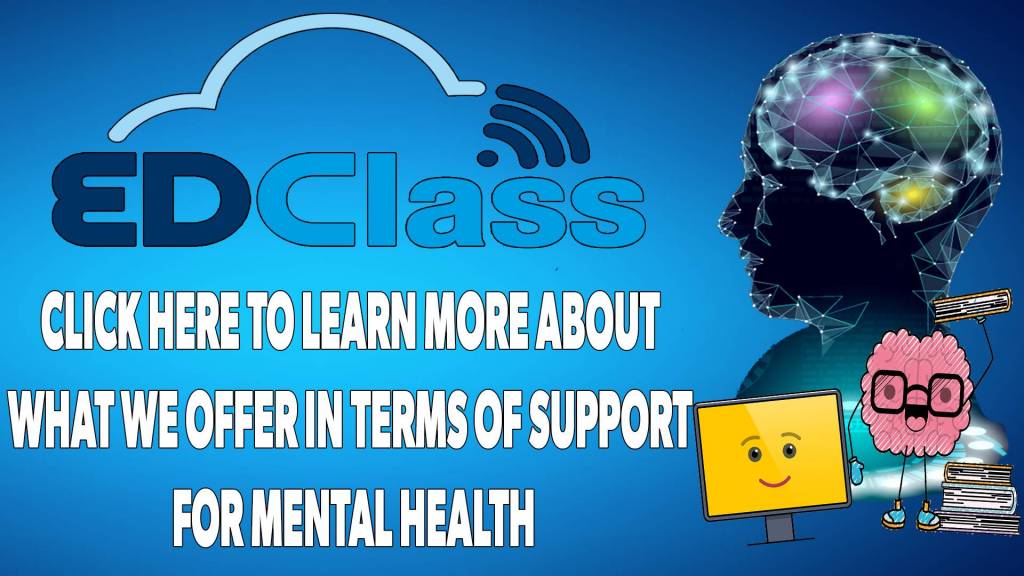Mental health issues may have increased in young people during the pandemic but online learning can help. With schools returning to normal, online education can further assist mainstream schools and benefit students’ lives.
According to an EdTech review:
“82% of students prefer a blended learning environment and 70% of students say their best learning is done in a blended learning classroom.”
Online education can positively impact students’ education and mental health as comfortable environments can lead to better results. Students have benefitted from online education for a variety of reasons. According to student responses from a questionnaire:
“The main advantages of online education were the ability to stay at home (69%), continuous access to online materials (69%), learning at your own pace (64%), and comfortable surroundings (54%).”
Online can be deemed very important to young people’s lives. Not only can online be a useful resource for learning, but it can also allow young people to find ways of coping with their mental health. When promoting inclusivity, online can offer some young people an easier option to talk about their problems. According to a mental health review:
“The vast majority (78 per cent) of young people contacting Childline now do so online, via email or online chat, and more counselling from the service (59 per cent) now takes place online than by telephone.”
Young people’s wellbeing becomes increasingly important as their cognitive skills and mental health develops. Additionally, social skills can still be advanced through the use of social media, when used appropriately. Despite the lack of face-to-face interaction, the younger generation may feel more comfortable as they are familiar with using such platforms.
“In the PISA wellbeing study of 15-year-old students, 90.5 per cent of boys and 92.3 per cent of girls in the UK agreed or strongly agreed with the statement ‘It is very useful to have social networks on the internet’.”
Online Education Can Provide Positives for Mental Health
Some students can be school-phobic and reluctant to attend school, particularly during the pandemic. Online education provides the potential for learners to continue their education at their own pace and learn in an environment where they do not feel threatened, physically or mentally.
Bullying, intimidation and increased anxiety are all examples of student hesitancies when attending school. Online education can reduce anxiety levels and the worries of being bullied due to the limited student interaction which can allow students to focus more on their studies.
Moreover, when implemented effectively, personalised learning pathways and one-to-one support can provide the opportunity for an increase in performance, and as a result, improved mental health. A YouGov poll commissioned by the Shaw Mind Foundation found:
“79% of British parents believe children should be taught more about mental health in schools.”
Online education became essential during the peak of the pandemic after school closures. Without it, students may have been even further behind than the situation they found themselves in. Not only was education upheld, but online education also led to some improvement for students in terms of wellbeing and anxiety as they didn’t have to worry about school.
“Compared to the pre-pandemic survey, there was an overall decrease in the proportion of students at risk of anxiety during lockdown, with girls’ falling from 54% to 45% and boys from 26% to 18%.”
“There was a small increase in wellbeing during lockdown for both boys and girls in comparison to before the pandemic. Students with low wellbeing pre-pandemic (15.9%) showed a meaningful (10 point) increase in wellbeing.”
EDClass Can Help Cope with Mental Health
EDClass can help students with their education and also monitor their mental health and help whenever it is needed. EDClass’ staff are also thoroughly trained in safeguarding with the senior team trained at DSL level.
The EDClass platform can be used as a powerful tool to help students with their mental health, achieve educational goals and rapidly impact their attainment and assessment levels.
The online world can have its drawbacks with some complications and issues, however, in relation to learning development, online education has the possibility to unlock students’ learning potential.
If you would like some more information on how EDClass can help with online education and mental health then please call 01909 568 338, send an email to mail@edclass.com or book a demo here.










